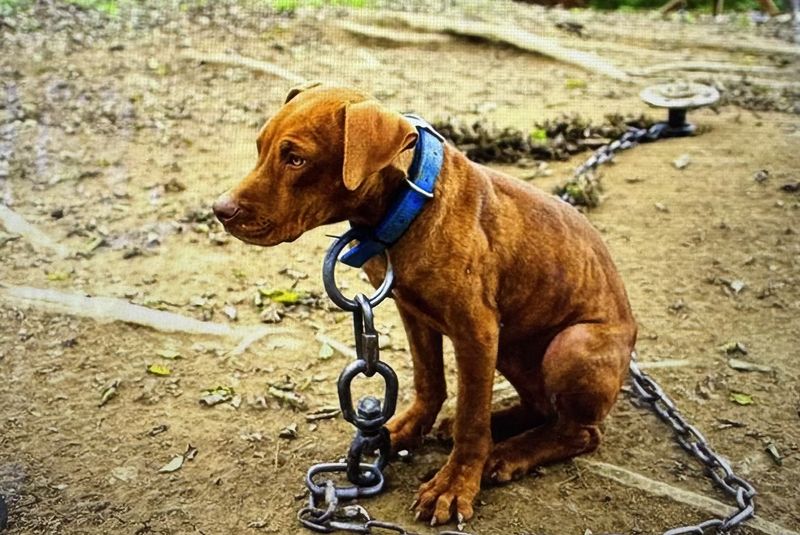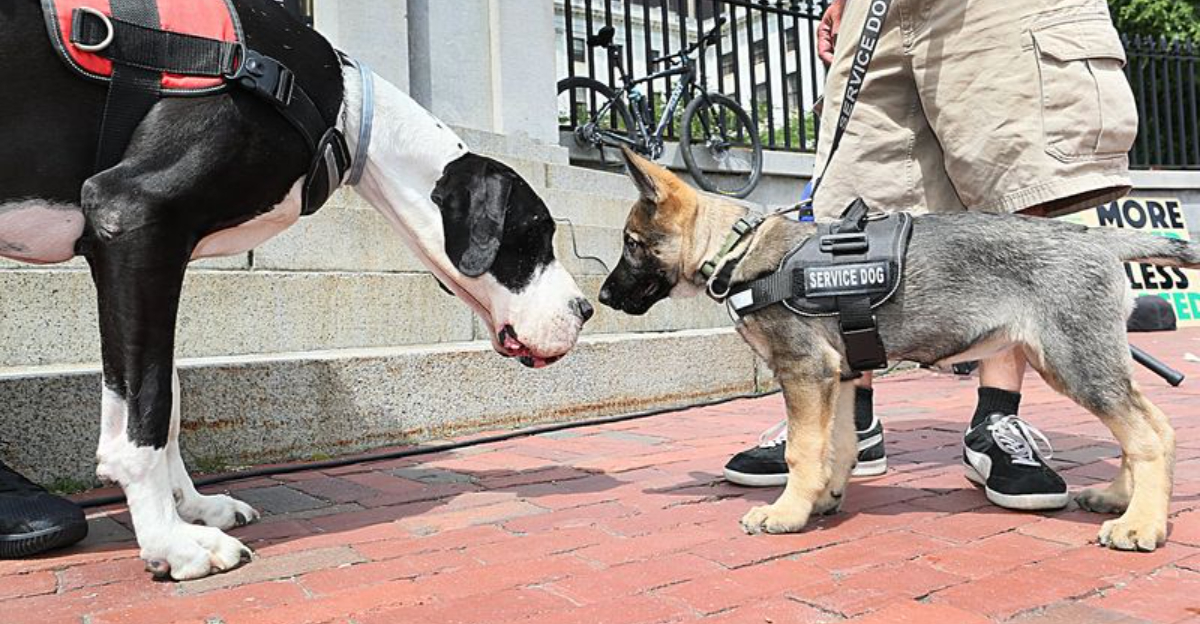Dog laws aren’t universal in the U.S. What’s perfectly legal in one state might land you a hefty fine in another!
These differences affect everything from where your pup can play to what breeds you can own. Understanding these variations is crucial for responsible pet ownership, especially if you plan to travel or relocate with your furry friend.
Leash Laws: Freedom Vs. Control

I discovered the hard way that leash laws can change dramatically at state borders! In Vermont, my dog Max could roam relatively freely in many areas, but when we visited New York City, I nearly got fined for having him off-leash in the wrong place.
States like Arizona and Colorado often defer to county or city regulations, creating a patchwork of rules. Meanwhile, Michigan and Pennsylvania have statewide leash requirements in many public areas.
Hawaii has some of the strictest leash laws, requiring dogs to be restrained in virtually all public spaces.
Rural states typically have more relaxed regulations, while urban areas enforce stricter control for safety reasons.
Breed-Specific Legislation: Banned In Some Places

The debate around certain dog breeds has created wildly different laws nationwide. My neighbor had to move from Miami-Dade County because her beloved Pit Bull wasn’t allowed there, despite being the gentlest dog I’ve ever met.
States like Colorado, Florida, and Texas have passed laws prohibiting BSL, meaning cities can’t ban specific breeds.
On the flip side, Arkansas, Michigan, and Ohio allow local governments to restrict or ban breeds they deem dangerous – often targeting Pit Bulls, Rottweilers, and German Shepherds.
Licensing Requirements: Paper Trails For Pups

Dog licensing varies dramatically across America, from strictly enforced to practically non-existent.
New York and California enforce mandatory licensing with potential fines for non-compliance.
These licenses typically require proof of rabies vaccination and payment of annual fees ranging from $5 to $20. Some rural counties in states like Alabama have minimal licensing requirements or enforcement.
The most progressive states link licensing to microchipping databases, creating comprehensive identification systems that help reunite lost pets with their owners faster.
Animal Cruelty Laws: Varying Degrees Of Protection

As a volunteer, I am shocked at how protection standards varies. The Animal Legal Defense Fund ranks states annually based on their animal protection laws, with Illinois, Oregon, and Maine consistently rating highest.
These top-ranked states typically classify animal cruelty as a felony and include provisions for mandatory reporting, veterinary reporting of suspected abuse, and court-ordered psychological evaluation.
Kentucky, Mississippi, and North Dakota often rank lowest, with weaker penalties and fewer protections.
Some states like New York have created animal abuser registries, preventing convicted abusers from owning pets.
State Dog Designations: Official Canine Representatives

Who knew states had official dogs? I certainly didn’t until visiting Maryland, where I learned about their Chesapeake Bay Retriever! These designations reflect each state’s unique history and culture.
Alaska proudly claims the Alaskan Malamute, while Massachusetts honors the Boston Terrier. Pennsylvania celebrates the Great Dane, and Louisiana recognizes the Catahoula Leopard Dog.
These designations aren’t just symbolic – they often boost tourism and awareness for specific breeds.
Interestingly, only about half of all states have designated official state dogs.
Mandatory Spay/Neuter Laws: Controlling Pet Population

Some states take population control seriously!
California leads with the strictest regulations, requiring most dogs and cats to be spayed or neutered by a certain age, with exceptions for show dogs and certain working animals. Rhode Island and New Jersey have similar laws in many municipalities.
These laws aim to reduce shelter populations and euthanasia rates.
Rural states typically have fewer restrictions, though many offer incentives like reduced licensing fees for altered pets rather than mandating the procedure.
Service Dog Regulations: Access Rights And Training

My friend’s service dog experiences completely different treatment depending on which state they visit. The Americans with Disabilities Act provides baseline protections nationwide, but state-level regulations create significant variations.
California has additional protections that exceed federal standards, including specific penalties for interfering with or denying access to service animals.
States like Florida and Washington have laws against service dog fraud – falsely claiming a pet is a service animal.
Some states like Illinois and Maine have expanded definitions that provide some public access rights to emotional support animals, which aren’t covered under federal law.
Dog-Friendly Public Spaces: Where Fido Can Go

California passed a state law allowing dogs in outdoor dining areas unless prohibited by local ordinance. New York and Florida have similar provisions, though implementation varies by municipality.
Colorado is famously dog-friendly, with many breweries and restaurants explicitly welcoming dogs.
Health codes generally prohibit non-service dogs inside food establishments across all states, but outdoor accommodations and retail access vary widely.
Some states allow individual businesses to set their own policies as long as they don’t conflict with service animal laws.
Anti-Tethering Laws: Freedom From Chains

The sight of a dog chained outside all day breaks my heart, but whether it’s illegal depends entirely on location. Anti-tethering laws represent one of the newest areas of animal protection legislation, with dramatic state-by-state differences.
California prohibits tethering dogs for extended periods, with specific time limits and requirements for proper shelter and access to water.
Oregon, Connecticut, and Nevada have similar restrictions. Texas recently strengthened its laws against chaining dogs outside in extreme weather.
Many southern states have minimal or no restrictions on tethering, though animal welfare organizations continue pushing for change.
Dog Bite Liability: Who Pays When Things Go Wrong

I was fascinated by how differently it would have been handled in various states. The legal concept of liability for dog bites follows several different models across America.
States like California and Florida have “strict liability” laws where owners are responsible for damages regardless of the dog’s previous behavior or the owner’s knowledge of aggression.
Other states like Texas and New York follow a “one bite rule” or negligence standards, requiring proof the owner knew the dog was dangerous.
Pennsylvania has a unique “mixed” system with different standards depending on the severity of injuries. These variations dramatically affect insurance requirements and legal outcomes.
